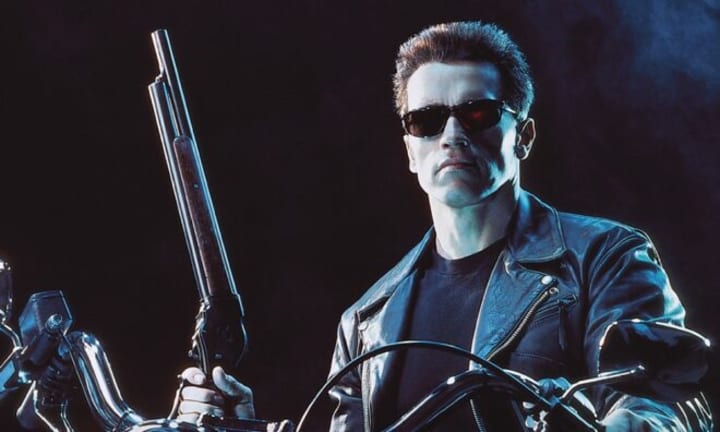More than 30 years after its release, Terminator 2: Judgment Day is still relevant today
James Cameron's Terminator 2 is not only a sequel that surpasses the original, it is a science fiction film that created a world of its own that is still relevant today.

"Terminator 2" demolishes the saying that second parts were never good. On July 1, 1991, a movie that would shake the decade of the nineties was released in Los Angeles (California): "Terminator 2: Judgment Day", also promoted simply as "T2".
Directed, produced and written by James Cameron, it features the powerful music of Brad Fiedel and an incredible soundtrack, with songs such as "You Could Be Mine" by Guns N' Roses.
The film was a real hit in theaters in those days. Unlike its predecessor, also directed by Cameron ("The Terminator" from 1984, a science fiction with elements of Cyberpunk and horror close to a Slasher), "T2" proposed a science fiction and action movie, with a certain tone of humor that did not exist in the first installment.
The cast counted with Arnold Schwarzenegger and Linda Hamilton, repeating their previous characters accompanied by Edward Furlong as John Connor.

The great novelty came with Robert Patrick playing the implacable T-1000, who despite looking less muscular than Schwarzenegger, maintained a very well achieved threatening performance.

The special effects were in charge of "Industrial Light & Magic" (ILM), who perfected a computer-generated animation (CGI) technique - used in the film "The Abyss" (1989) by the same director - to achieve the T-1000's famous liquid metal effect.
With its air of large-scale epic in the midst of state-of-the-art special effects, Cameron's film still surprises. But beyond that, it dazzles for its ability to link the idea of a dystopian story with an emotionally tinged story. A combination that allowed Cameron to reinvent one of his best-known hits to a new level.
When James Cameron first mooted making a sequel to his 1984 hit Terminator, there was disbelief and some hesitation. After all, the original film became an unpredictable hit and a sci-fi revival with an urban feel. But the phenomenon seemed far removed from realizing the project the director pitched from his difficulties. Not only was it an expensive film - the visual effects that Cameron proposed were almost unthinkable for the time - but an almost unnecessary sequel. Or at least, that's what producers and executives thought. Later, the director would say that overcoming the studios' disbelief was more difficult than shooting the film. And in fact, almost everything surrounding Terminator 2: Judgment Day seems to be the work of Cameron's tenacity. Of his purpose to create something unexpected, novel and surprising. Also, as usual, of his considerable ambition.
A film that became a milestone in cinema
Already in 1984, Cameron proved to be capable of dealing with all kinds of difficulties to carry out projects that were apparently unfeasible. Terminator was the conclusion of a series of more or less successful experiments, which in the end became an amazing proposal. The director had the idea of filming what he would later call "the definitive Robot movie". There were rumors that the script was the work of Cameron's envy for the success and complexity of the plot of George Lucas' Star Wars saga. Something that surrounded the myth of the film as part of a much larger phenomenon even before its release.

Years later, Cameron would explain that Terminator 2: Judgment Day was a combination of economy of visual and narrative resources. On the occasion of the film's thirtieth anniversary, he explained to Variety that he had just enough budget to create the world he had imagined and that expanding on the origin of his protagonists was an expense he could not afford. So he played what he called "the Kafka card," which is to say that he appealed to viewers' credulity from the first glimpse of this tale of a pre-apocalyptic world in which the long-term future of the human species would be at stake. In the interview Cameron said:
"Kafka doesn't explain how Gregory Samsa was transformed into an insect, he just says it happened... and in doing so he lays out the rules for the viewer to easily follow. In my case, I wanted to make it clear that this was a complicated story that didn't need further detail, but that you would accept what little I could tell you about it."
Terminator 2: Judgment Day, a film that involved expanding a universe barely sketched out in a low-budget film from a decade earlier. But Cameron took the audacity to not only do so, but establish a mythology that still feels current. If his dystopian story of a future ravaged by nuclear war and in the hands of artificial intelligence surprised, its immediate sequel was a challenge.
The fear of nuclear devastation was still part of the collective memory. But by the 1990s, the Reagan-era tension of an impending colossal confrontation was gone. What could Cameron show to underpin the perceived urgency of his premise? The answer, was the fact of a promised messiah. One that Terminator was a plot excuse, but that Terminator 2: Judgment Day would be the driving point of the action. A version about a hero in training, a singular relationship between human and machine and also, the conception of contemporary good and evil.
The teenage John Connor played by Edward Furlong was not interested in being a hero, nor did he believe he would be. But Cameron endowed his character with an essential integrity that made him believable.

Likewise, the evolution of Sarah Connor, from disgraced victim to a super presence willing to wield any weapon to save her son and the future. The character turned the new female heroine into something more. She was an action hero, but also a broken woman and an obsessed mother. All under the shadow of a love story gone wrong that Cameron took as the story's common thread. Terminator 2: Judgment Day is much more than a sequel, it is a visual spectacle that still surprises with its timelessness.

Terminator 2: Judgment Day, a bet on the future
The project for an immediate Terminator sequel spent a good amount of time in the limbo of unfinished processes. It would be in 1990 when producer Andrew Vajna finally gave the project the green light. The requirement? That it should be released the following year. Cameron accepted immediately despite having the time against him for a project of the size he imagined.
Nevertheless, the director's team didn't flinch. They spent weeks writing the story, which faced a gigantic obstacle from the start. The main villain, played by Arnold Schwarzenegger and the cornerstone of the original film's popularity, was dead. It was a challenge that the screenwriters solved from the obvious: to tell the story from the perspective of the survivors. But also to give the film's story a twist. Arnold Schwarzenegger's T-800 had an almost involuntary redemption. And from the object of terror in the original premise, he became a circumstantial ally in the second.

For the new face of the time-traveling killing machines, the concept of the original film was taken, but taken to the other extreme. The T-1000 played by Robert Patrick, became a very advanced version of the android model embodied by Schwarzenegger. Of course, it was already obvious that some kind of special effect, yet to be tested, would be needed to ensure what Cameron had in mind. But still, the director went ahead.
The job of creating the evil T-1000 went to George Lucas' Industrial Light and Magic company. It was a challenge that was to improve - refine and take to another level - what Cameron had then done. The closest example was his 1989 film The Abyss. However, the mobility, dynamics and reach of the T-1000 made it a challenge that, at times, seemed insurmountable. But in the end, Cameron's effort and that of a team that created the digital technology to carry out the story, triumphed. A considerable triumph, making Terminator 2: Judgment Day a high point in the history of science fiction cinema.
****
© Emby Lat
Thank you for reading this. If you liked my writing, please subscribe and click the little heart below this piece or near my name, at the top of this page.
If you liked this, you might also like this:
About the Creator
Emby Lat
I like movies, technology, games, art and anything that I find interesting.






Comments
There are no comments for this story
Be the first to respond and start the conversation.